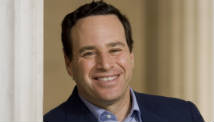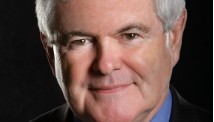Editor's note: Congress is debating whether to give President Obama authorization for military action in Syria after U.S. intelligence reports say "beyond any reasonable doubt" that President Bashar al-Assad used chemical weapons against his own people. According to Secretary of State John Kerry, at least 1,429 Syrians were killed, including hundreds of children. CNN contributors and analysts offer their views on whether it makes sense for the U.S. to intervene.
 Anne-Marie Slaughter
Anne-Marie Slaughter (CNN) -- Anne-Marie Slaughter: Support Obama on Syria
In his 2008 inaugural address, Obama called for a new era of responsibility in this country, "a recognition ... that we have duties to ourselves, our nation and the world." We have those duties not because the United States has some unique role or mission in the world, but because we are the world's most powerful nation. Other nations take their cues from our action or inaction, whether we want them to or not.
If we do not act, we are signaling that the world has suddenly become a far more permissive and dangerous place, that taboos can be broken, and that despite the pious words of the international community, leaders can do whatever they like within their own borders.
If we lead, other nations that take their responsibilities seriously as great powers will join us. Read more...
Anne-Marie Slaughter is president and CEO of the New America Foundation. She was director of policy planning in the U.S. State Department from 2009 to 2011.
 David Rothkopf
David Rothkopf David Rothkopf: Obama, ignore the polls on Syria
Most Americans don't want the United States to launch military strikes against the Syrian government. A recent ABC News/Washington Post poll says 59% of the American people oppose such an intervention, while 36% support it. Even more oppose supplying weapons to the Syrian rebels, with 70% against and 27% in favor.
Many have welcomed President Barack Obama's move to bring the decision before Congress as giving the issue the kind of national debate it deserves. And hearings this week may move the needle of public opinion to give the president more confidence that he has the backing of U.S. voters. Read more...
David Rothkopf writes regularly for CNN.com. He is CEO and editor-at-large of the FP Group, publishers of Foreign Policy magazine, and a visiting scholar at the Carnegie Endowment for International Peace. Follow him on Twitter.

Gloria Borger: Obama's irony, McCain's agony
All presidential decisions are, in the end, difficult and complex. And under any circumstance, the decisions on issues of war (surgical strikes included) are agonizing. The decision to use force -- the repercussions, the cost in blood and treasure, the geostrategic implications -- is complicated and the implications obviously immense.
But as the Syria story unfolds, there is an almost Shakespearean drama beneath the surface -- one of political careers made and broken, of past positions held and almost abandoned. Not to mention the political enemies now finding themselves -- awkwardly -- on the same side of history. Read more...
Gloria Borger is a chief political analyst at CNN.
 Frida Ghitis
Frida Ghitis Frida Ghitis: 5 reasons the U.S. must intervene in Syria
Syria feels far away; a tragedy, no doubt, but to many who strongly oppose any kind of intervention, it is simply too removed, too complicated, too foreign to view as an American problem. Military action, the skeptics rightly say, has consequences, often unpredictable ones. But so does inaction.
Inaction is more dangerous -- potentially riskier and costlier -- than smart, limited intervention. Syria may seem far away, but every passing day, every calamitous, explosive, hate-infused day, makes it more America's -- and the world's -- problem. Read more ...
Frida Ghitis is a world affairs columnist for The Miami Herald and World Politics Review. A former CNN producer and correspondent, she is the author of "The End of Revolution: A Changing World in the Age of Live Television." Follow her on Twitter: @FridaGColumns.
Opinion: Don't use Syria to pump up Pentagon spending
 David Frum
David Frum David Frum: Questions for backers of Syria mission
A war between Bashar al-Assad's regime, Hezbollah and Iran one side and al Qaeda-style Islamic radicals on the other is a fight in which the United States has no dog.
Hurting the al-Assad regime inevitably means helping the rebels. True, some of the rebels are nicer than other rebels. It's also true that the nasty rebels are the faction likelier to dominate if the al-Assad regime falls.
In June, the nasty rebels and the nicer rebels came to violence over control of strategic checkpoints in northern Syria. The conflict ended with the nasty rebels assassinating one of the top leaders of the nicer rebels and consolidating control over the disputed territory.
So much of the debate about Syria is a debate about "how"? We are in real danger of skipping over the more important questions: "Why?" and "For whose benefit?" Read more ...
David Frum, a CNN contributor, is a contributing editor at The Daily Beast. He is the author of eight books, including a new novel, "Patriots," and a post-election e-book, "Why Romney Lost." Frum was a special assistant to President George W. Bush from 2001 to 2002.
 Newt Gingrich
Newt Gingrich Newt Gingrich: Syria is distraction from real U.S. challenges
President Barack Obama did the right thing in going to Congress for a debate and a vote on a proposed national security action.
He could have followed precedent set by presidents of both parties and launched missiles under his powers as commander in chief. In an America tired by 12 years of continuous warfare (the longest in our history), however, it was wise to engage the American people through their elected representatives in the Congress.
Unfortunately, the president picked the wrong topic on which to have a national debate. Launching a few missiles at Syria is a tactical action that will not change history. Obama has already pledged that he is seeking a limited engagement and is not trying to replace the dictatorship of President Bashar al-Assad. Read more ...
Newt Gingrich is the new co-cost of CNN's "Crossfire," which makes its debut on Monday.
Opinion: GOP shouldn't bail out Obama's floundering foreign policy
 Sen. Rand Paul
Sen. Rand Paul Rand Paul: Obama, don't rush into war
From a strategic standpoint, there are three questions that should always be asked and sufficiently answered before going to war: What is the U.S. national interest? What is the military objective? What is the exit strategy? Concerning Syria, these questions not only haven't been answered, they haven't even been asked.
War should never be treated as a crapshoot. Our troops deserve better. America deserves better. Read more ...
Rand Paul, a Republican, is a U.S. senator from Kentucky.
 Fareed Zakaria
Fareed Zakaria Fareed Zakaria: Obama team has mishandled Syria
I don't think that this strike, should it eventually take place, will be as damaging as its critics fear. The al-Assad regime will likely hunker down, take it and move on. It will make little difference one way or the other. But the manner in which the Obama administration has first created and then mismanaged this crisis will, alas, cast a long shadow on America's role in the world. Read more ...
Fareed Zakaria is the host of GPS, which airs Sundays at 10 a.m. and 1 p.m. ET on CNN.
 Peter Bergen
Peter Bergen Peter Bergen: Obama, a realist and risk-taker
We can be sure that in the next days, the administration will make the argument that if you let Syria take a pass on its large-scale and repeated use of chemical weapons, you can forget any chance of slowing or ending Iran's nuclear program, something that is a matter of great importance for much of the Republican Party.
For those on the left of the Democratic Party in Congress who are generally skeptical of U.S. military actions, Obama can essentially ask, "If not now, when?" At what point will self-described liberals intervene to stop the use of weapons so vile that they have been banned by the civilized world for almost a century? Read more ...
Peter Bergen is CNN's national security analyst, a director at the New America Foundation and the author of "Manhunt: The Ten-Year Search for bin Laden -- From 9/11 to Abbottabad."
 Laurie Garrett
Laurie Garrett Laurie Garrett: Chemical weapons are a nightmare for Syrians
According to Vice President Joe Biden, there is "no doubt" that chemical weapons were used by the regime -- and not, as the al-Assad government has claimed, by rebel forces.
The victims suffered terrible and painful deaths. Many experts are concluding that most likely, a nerve agent such as sarin was deployed. Sarin is a type of organophosphate, a class of chemicals used for making herbicides, insecticides and nerve gases.
The effects of sarin and other organophosphates on the human body are profound and shocking and can be long-lasting. Some exposures have left the surviving victims paralyzed for weeks, with perhaps permanent liver malfunctions and lingering neurological dysfunctions.
Organophosphates disintegrate in a matter of hours. But during their comparatively brief period of volatile danger, the deadly molecules can pass through human skin, nostrils, lungs and eyes to enter the bloodstream and then the brain. If enough of it gets inside the brain to saturate the nervous system, an agonizing death follows. Read more ...
Laurie Garrett is senior fellow for global health at the Council on Foreign Relations and a Pulitzer Prize-winning journalist.
Opinion: The only road to peace in Syria
 Alex Castellanos
Alex Castellanos Alex Castellanos: GOP shouldn't bail out Obama's floundering foreign policy
Our president is lost at sea again, in an ocean of equally bad options.
This president is an intellectual. He seems to believe war is the failure of lesser minds to find a reasonable alternative. Does President Barack Obama take America to war in Syria when, by disposition, such barbarism is not in him? Or does our president do nothing, permitting the continued slaughter of innocents while Bashar al-Assad dances across the bright "red line" painted by the leader of the free world?
Bad options all around. It was not out of character for this uncertain man to leave even his cherished golf game to reverse the course his secretary of state charted only 24 hours before. Read more...
Alex Castellanos, a CNN contributor, is a Republican consultant and the co-founder of Purple Strategies. Follow him on Twitter: @alexcast
 David Gergen
David Gergen David Gergen and Michael Zuckerman: On Syria, Obama must show strong grip
For Obama, it is also possible that the delay for a congressional vote will one day be seen as tactically shrewd.
Already, he is receiving more help internationally. Saudi Arabia has come out publicly for military action, the Arab League has toughened its stance, and the NATO secretary general has now called for punishment of the al-Assad regime for using chemical weapons. Obama's trip to the G-20 next week gives him a chance to round up more support.
But there is no doubt that he and his team still have a lot of work to do to convince the skeptics, and nowhere is that more important than with the American public. Members of Congress know full well how uneasy many of their constituents are. They will soon be demanding that the president win over more of the public as a price for their own support. There is a good chance we will hear an address from the Oval Office on the eve of congressional voting. Read more ..
David Gergen is a senior political analyst for CNN and has been an adviser to four presidents. He is a professor of public service and director of the Center for Public Leadership at Harvard University's Kennedy School of Government. Follow him on Twitter. Michael Zuckerman, David Gergen's former research assistant, is on staff at the Kennedy School and will be entering Harvard Law School.
 Patrick Regan
Patrick Regan Patrick M. Regan: Syria strike would put peace further out of reach
An attack on the Syrian military by the United States would send a message to al-Assad, but it is not clear if Obama has any strategic objective beyond that. Whether he has such a plan or not, any U.S. attack will have implications for the civil war, no matter how much Obama says otherwise. Read more...
Patrick M. Regan is a professor of peace studies and political science at the Kroc Institute for International Peace Studies, University of Notre Dame. He is the author of "Civil Wars and Foreign Powers" (University of Michigan Press, 2000) and "Sixteen Million One" (Paradigm, 2009), which examines the causes, consequences and possible solutions to civil wars.
William Hartung: Don't use Syria to pump up Pentagon spending
Using Syria as an excuse to hold off on Pentagon cuts would be an endorsement of the tens of billions of dollars in waste that exist in the current Department of Defense budget. And it would postpone a long overdue reshaping of the U.S. military to address a world increasingly dominated by non-traditional threats like cyber-attacks, climate change, epidemics of disease, and the spread of nuclear weapons. Read more...
William D. Hartung is the director of the Arms and Security Project at the Center for International Policy. Follow him on Twitter: @WilliamHartung
Follow us on Twitter @CNNOpinion.
Join us on Facebook/CNNOpinion.
{ 0 comments... read them below or add one }
Post a Comment